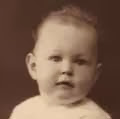One of the most ancient stories in Western literature is about
two men who fight until they are exhausted and then laugh out loud as they
realise they have been each other’s
equal all along, and so become best friends.
This is not just a ripping yarn but a story about what it
means to be human and about what we are capable of – the bad as well as the
good.
The Iliad is, likewise, not just entertainment but an
account of what Achilles, the greatest Greek warrior, is remembered for and
why.
It’s not his prowess as a warrior but how he regained his
humanity by recognising the humanity of his enemy, Priam, King of Troy.
Priam’s grief moved Achilles to tears. He then did what was
required of him by the rules that regulated the relationship between strangers
and enemies.
Myths such as Gilgamesh and The Iliad, like the Bible, are
powerful stories that throw light on questions we may have about the stories of
our own lives.
How, for example, did we mature, in 100 years, from White
Australia to the Multicultural society we are today?
What enabled us to enlarge the Anzac Story by agreeing that
the Turks should march with us on Anzac Day and form their own RSL Sub
Branches?
Why are Vietnam Veterans returning in droves to Vietnam to
the redemptive welcome of their former enemy?
So, is there more to
achieve along the trajectory we have been on, from White Australia to Multiculturalism?
Yes. Our sense of who we are and what we are capable of is
not yet everything it can be.
For example, can the Anzac Story be further enlarged to
include all who fought to defend this country?
Are we capable of being moved by the grief of other
Australians whose forebears defended this country for 140 years against us, and
finally befriending them?
Yes we can, according to the ancient and venerable stories
of Gilgamesh and Achilles, because this exactly the kind of thing human beings
are capable of when we are at our best.
No matter what has gone before, we can, like Achilles,
respond to the grief of our former enemy and accord them the courtesies of our
shared humanity.
Like Gilgamesh we can go even further than being merely
courteous and befriend as an equal the former enemy we could not defeat.
Including the first Australian patriots in the Anzac Story may
seem like a big ask. But it is a logical next step on the path we have been on.
It is what comes next – unless we move backwards and that is surely unthinkable.
Well, no actually. Another reason we should know the big
stories of our culture is precisely that they remind us that we are capable of
trashing what we treasure.
By connecting the Anzac Story the Myth of the Trojan War we can
not only understand why we have matured from White Australia to Multicultural
Australia, but recognise the options for the next step along that path.

No comments:
Post a Comment